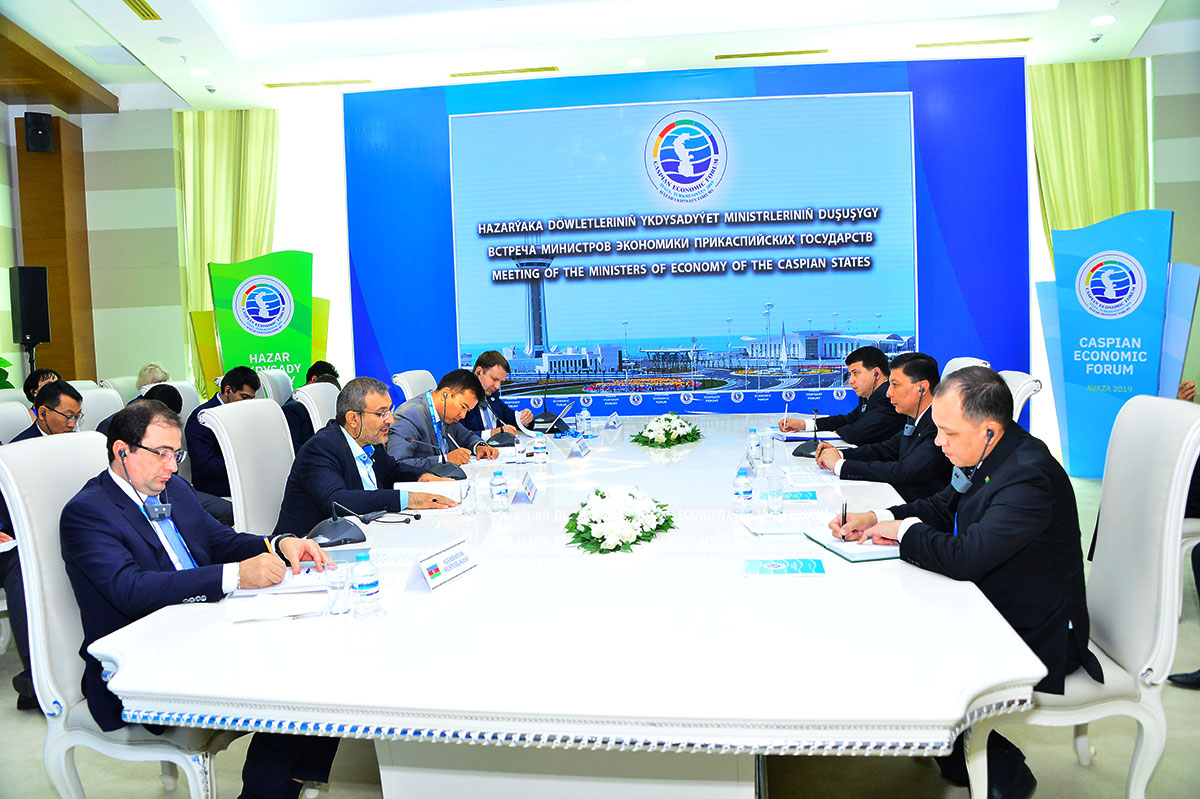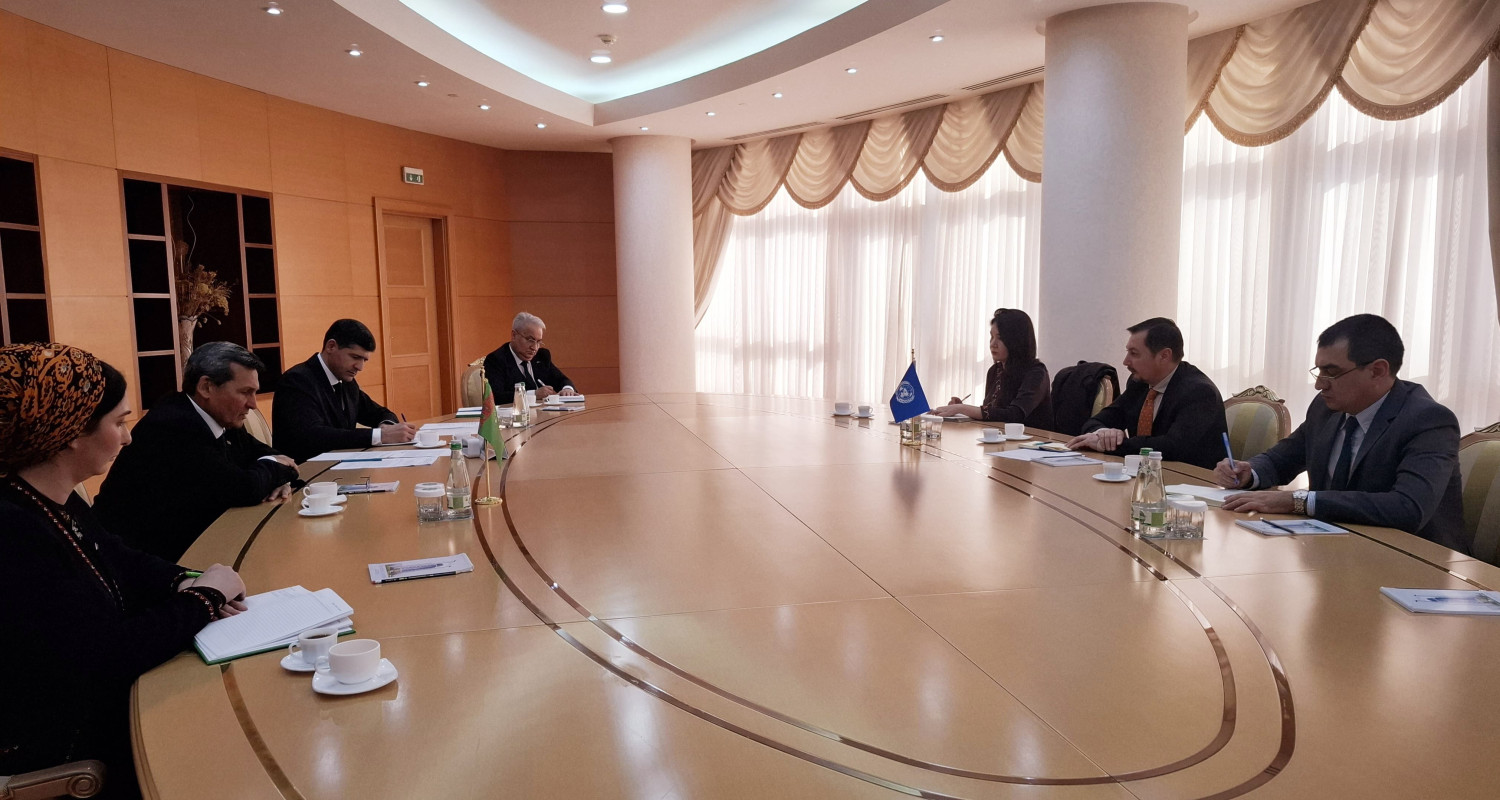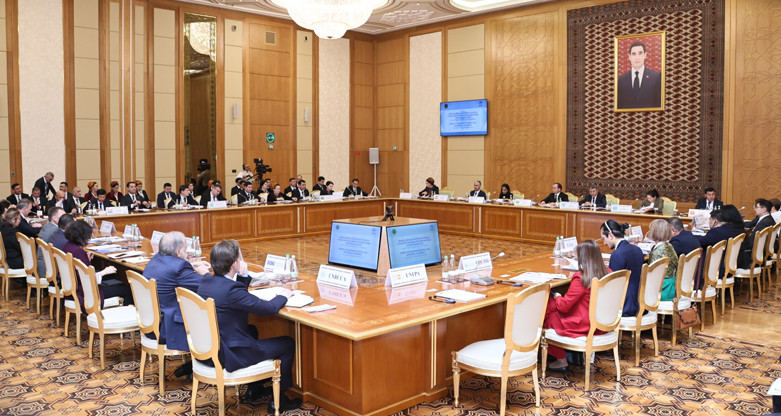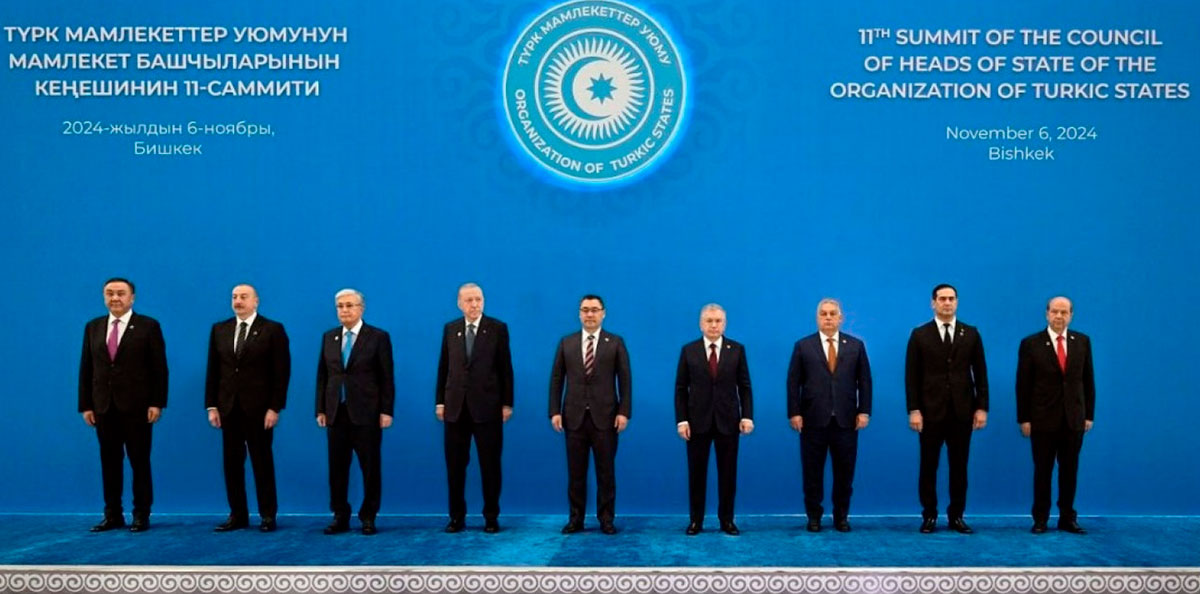As part of the First Caspian Economic Forum, Avaza has hosted a meeting of representatives of sectoral agencies of the Republic of Azerbaijan, the Islamic Republic of Iran, the Republic of Kazakhstan, the Russian Federation, and Turkmenistan - the parties to the Agreement between the Governments of the littoral Caspian nations on trade-economic cooperation, signed at the Fifth Caspian Summit in Aktau in 2018.
As noted, given the existing global geopolitical context, a mechanism for regional cooperation is attaining greater importance and topicality not only as an instrument for deepening economic interaction, but also as a key factor in ensuring sustainable development.
The heads of the visiting foreign delegations highlighted that the constructive cooperation among the coastal nations aims at combining efforts in order to accomplish the objectives. In the present era, the Caspian Sea has an increasingly important role to play in the global geopolitical and geo-economic landscape. Expanding steadily the full regional cooperation is entirely consistent with the five coastal countries’ policies.
The countries have adopted a ‘stability through common development’ approach as an optimal form of partnership that reflects economic needs of each Caspian Sea nation. In this context, it was noted that the forum is well timed taking place at exactly the right moment.
The participants shared an opinion that coordinated efforts are today taking on particular significance for macroregional cooperation. Special emphasis was placed on the importance of the Convention on the Legal Status of the Caspian Sea, signed at the Fifth Caspian Summit in August 2018. The real value of this international treaty, which has become a strategically vital step in promoting economic development in the Caspian Sea, lies in the fact that it provides the legal groundwork for enhancing cooperation in different areas.
Speakers at the meeting highlighted that dealing with the pressing issues on the agenda would help to identify areas of common interest to further strengthen the mutually profitable relations. On the whole, further partnership between the region’s countries offers real prospects for maintaining rapid sustainable development and their integration into the world economy.
Amid growing competition in the foreign and domestic markets, the littoral countries’ considerable industrial and investment potential should be used to cement cooperation in tackling burning issues. Exchanging their views on the possibilities of boosting the constructive contacts, the heads of the delegations expressed satisfaction with the states’ mutual desire to step up economic relations, and create effective mechanisms for cooperation to make the Caspian Sea region an area of integrated partnership on an equitable and long-term basis with an investment-friendly climate. In this context, the parties spoke for implementing interstate programs and projects.
Those speaking from the Turkmen side stressed that the development of international ties in investment activities contributes to fulfilling our country’s versatile potential. Willingness of foreign investors to invest heavily in the national economy, which boasts good performance indicators, testifies to great trust placed in our country as a reliable, responsible and reputable partner that has enormous potential. In this regard, the sides discussed potentialities of creating joint enterprises.
In the course of the meeting, special attention was given to sharing knowledge and expertise on establishing and developing special free economic zones that have become an integral part of world economic relations today. The speakers emphasized that creation of free economic zones will boost competitiveness of the national economies, enhance export possibilities of the littoral states, and, eventually, bring prosperity and well-being to the nations.
The digital economy was named as a key area of cooperation. The sector is identified as a top priority and main focus of the coastal countries’ state policies. As noted, in this day and age, it is impossible to imagine living without information technologies that have changed, facilitated and improved activities in different spheres, having opened up new market possibilities.
Digital infrastructure and advances in computer technologies create huge potential in the field of information systems, accelerating their widespread adoption in economic life, and forming the bedrock of the digital economy. In this respect, the meeting attendees considered implementing joint action plans in the sector. This will encourage the countries’ business and investment activities, helping to build up productive relationships.
The parties also recognized the advisability of sharing legislative acts, national standards, regulations and statistical data on trade-economic issues, having proposed to work out new agreements. The meeting also addressed the need to simplify visa procedures as this would bring benefits and stimulate the region’s economic development in the long run.
As noted, given the existing global geopolitical context, a mechanism for regional cooperation is attaining greater importance and topicality not only as an instrument for deepening economic interaction, but also as a key factor in ensuring sustainable development.
The heads of the visiting foreign delegations highlighted that the constructive cooperation among the coastal nations aims at combining efforts in order to accomplish the objectives. In the present era, the Caspian Sea has an increasingly important role to play in the global geopolitical and geo-economic landscape. Expanding steadily the full regional cooperation is entirely consistent with the five coastal countries’ policies.
The countries have adopted a ‘stability through common development’ approach as an optimal form of partnership that reflects economic needs of each Caspian Sea nation. In this context, it was noted that the forum is well timed taking place at exactly the right moment.
The participants shared an opinion that coordinated efforts are today taking on particular significance for macroregional cooperation. Special emphasis was placed on the importance of the Convention on the Legal Status of the Caspian Sea, signed at the Fifth Caspian Summit in August 2018. The real value of this international treaty, which has become a strategically vital step in promoting economic development in the Caspian Sea, lies in the fact that it provides the legal groundwork for enhancing cooperation in different areas.
Speakers at the meeting highlighted that dealing with the pressing issues on the agenda would help to identify areas of common interest to further strengthen the mutually profitable relations. On the whole, further partnership between the region’s countries offers real prospects for maintaining rapid sustainable development and their integration into the world economy.
Amid growing competition in the foreign and domestic markets, the littoral countries’ considerable industrial and investment potential should be used to cement cooperation in tackling burning issues. Exchanging their views on the possibilities of boosting the constructive contacts, the heads of the delegations expressed satisfaction with the states’ mutual desire to step up economic relations, and create effective mechanisms for cooperation to make the Caspian Sea region an area of integrated partnership on an equitable and long-term basis with an investment-friendly climate. In this context, the parties spoke for implementing interstate programs and projects.
Those speaking from the Turkmen side stressed that the development of international ties in investment activities contributes to fulfilling our country’s versatile potential. Willingness of foreign investors to invest heavily in the national economy, which boasts good performance indicators, testifies to great trust placed in our country as a reliable, responsible and reputable partner that has enormous potential. In this regard, the sides discussed potentialities of creating joint enterprises.
In the course of the meeting, special attention was given to sharing knowledge and expertise on establishing and developing special free economic zones that have become an integral part of world economic relations today. The speakers emphasized that creation of free economic zones will boost competitiveness of the national economies, enhance export possibilities of the littoral states, and, eventually, bring prosperity and well-being to the nations.
The digital economy was named as a key area of cooperation. The sector is identified as a top priority and main focus of the coastal countries’ state policies. As noted, in this day and age, it is impossible to imagine living without information technologies that have changed, facilitated and improved activities in different spheres, having opened up new market possibilities.
Digital infrastructure and advances in computer technologies create huge potential in the field of information systems, accelerating their widespread adoption in economic life, and forming the bedrock of the digital economy. In this respect, the meeting attendees considered implementing joint action plans in the sector. This will encourage the countries’ business and investment activities, helping to build up productive relationships.
The parties also recognized the advisability of sharing legislative acts, national standards, regulations and statistical data on trade-economic issues, having proposed to work out new agreements. The meeting also addressed the need to simplify visa procedures as this would bring benefits and stimulate the region’s economic development in the long run.







